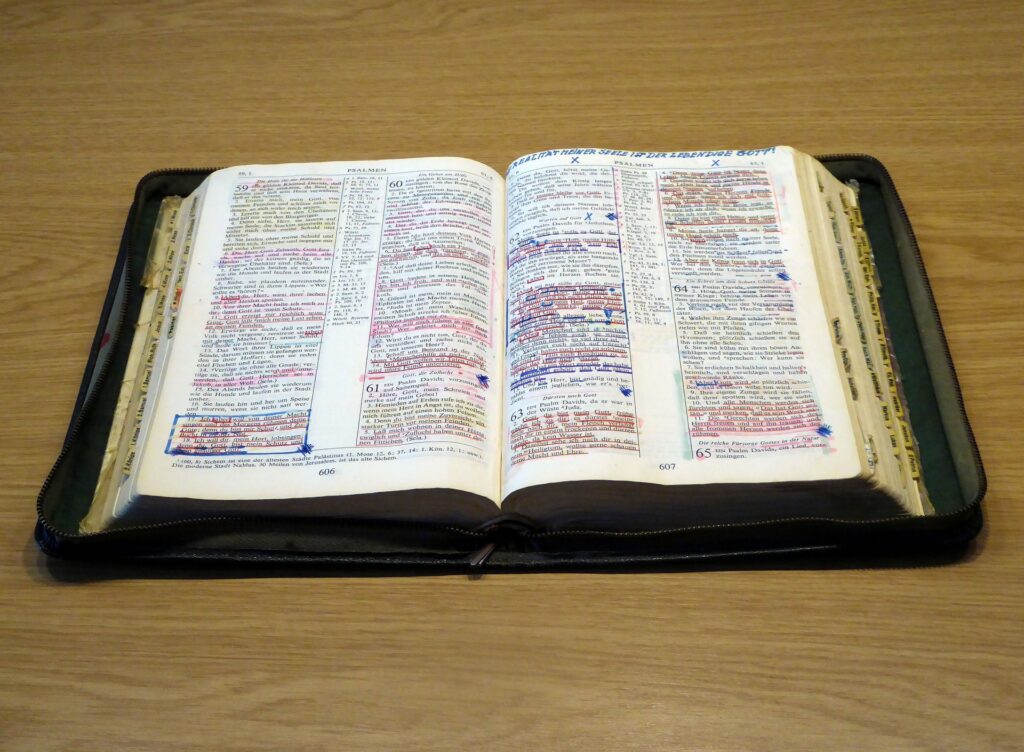
The Roles of Men and Women (1 Timothy 2:8-15)
In this section, Paul outlined different roles for men and women. Why would God establish different roles for the two genders? Do different gender roles mean that one sex is inferior to the other? Why or why not?
“I desire then that in every place the men should pray, lifting holy hands without anger or quarreling.” “In every place” likely refers to every place the church was assembled, i.e., in every congregation. Notice that Paul said the men were to do the praying—the mention of the men doing the praying likely has to do with the different roles for men and women.
The men were to pray lifting holy hands.
- Does prayer posture really matter? If not, why does Paul mention the lifting of hands? What other prayer postures do you find in Scripture?
- Why was it necessary that these men lift “holy” hands? How can hands be holy? How important is holiness for worship? Why is holiness necessary for proper worship? What is holiness?
- These holy hands should be without anger or quarreling. What is the connection between being holy and not being angry or quarreling? Why is it necessary to avoid anger and quarreling in the local congregation? How can we avoid anger and quarreling in the local congregation?
The women were to adorn themselves in respectable apparel. Why did Paul single out women as needing to wear respectable apparel? Is there still an issue with women wearing unrespectable apparel?
Typically, when we address the subject of modesty, we speak about the wearing of too little clothing. Paul, however, addressed the wearing of too much clothing—braided hair and gold and pearls and costly attire. Why would Paul encourage women not to dress in such a fashion? Does this text mean that it’s wrong to wear breaded hair or gold or pearls or costly attire? Why or why not? What is the principle we should learn from this text?
Why are modesty and self-control important qualities in women?
How can a woman adorn herself with good works? What are some good works a woman can “wear?” What are some examples of women who wore good works?
What did Paul mean when he said that women need to learn quietly with all submissiveness?
What two things did Paul say at verse 12 he did not permit a woman to do? What two reasons did Paul give for these prohibitions? What might be some reasons modern Christians give for Paul’s prohibitions?
A woman will be saved through childbearing. What did Paul mean? Paul is likely using a literary device known as synecdoche. With synecdoche a part stands for the whole. Jesus used this figure of speech in the Lord’s Prayer when he asked the Father for our daily bread—Jesus meant food, but he used bread to mean the totality of our daily sustenance. Thus, it seems to me that “childbearing” stands for the totality of a woman’s role.
- What might be the totality of a woman’s role?
- Who are some women in Scripture who performed that role well?
Proper women must continue in faith and love and holiness, with self-control. Why are these important qualities? Are these qualities only women need? Why or why not?





